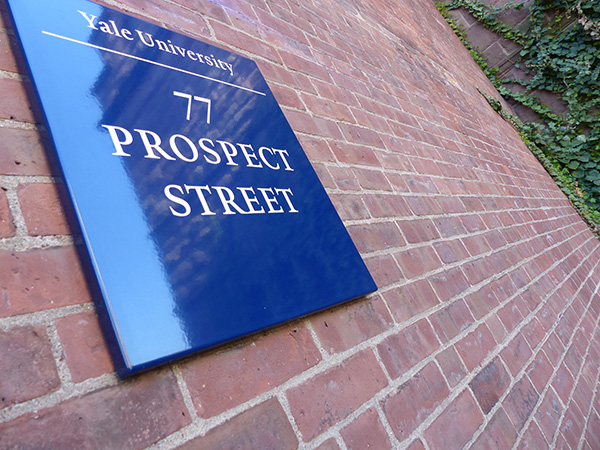ISPS Grants: Fueling Innovation in Social Science Research

The Institution for Social and Policy Studies is now accepting grant proposals from Yale faculty and graduate students interested in conducting social science research projects or organizing conferences.
“We are delighted to once again offer these distinct funding opportunities as part of our mission to support social science research that aims to deepen our understanding of society and advances social science research methods,” said Alan Gerber, ISPS director and Sterling Professor of Political Science. “The funding programs receive terrific proposals, and it is always exciting to learn more about and support the wonderful work our colleagues are doing across the university.”
Available grants fall into five categories.
The ISPS Survey Research Fund is dedicated to backing research endeavors aimed at advancing survey methodology, whether through design enhancements or innovative analytical approaches.
The ISPS Field Experiments Research Fund supports randomized U.S.-based study designs in which the researchers assign observations in a naturalistic setting to treatment and control conditions.
Seeking to foster innovation and rigorous inquiry into the mechanics of transparent, efficient, and representative governance, the Democratic Innovations Research Fund encourages proposals on diverse topics. These may range from methods to combat political corruption to the exploration of alternative voting systems and more.
In collaboration with the MacMillan Center, ISPS facilitates research that transcends conventional disciplinary boundaries. By integrating domestic social and policy research supported by ISPS with international and regional inquiries backed by the MacMillan Center, this partnership enables faculty to assemble multidisciplinary research teams and submit proposals on general themes without being restricted by distinctions between domestic and international coverage.
Finally, ISPS allocates funds to facilitate conferences addressing significant social and public policy issues, particularly, those with issues and themes that span multiple disciplines or schools.
The deadline for all new grant applications is April 5.
This past fall, ISPS awarded funding to support seven conferences on important social and public policy issues.
In addition, ISPS funded 10 research projects in the previous round of grants.
Crystal Shackleford, a postdoctoral associate in the Department of Psychology is conducting a field experiment on the sociopolitical and psychological implications of universal basic income.
Gregory Huber, an ISPS fellow, chair of the Political Science Department, and Forst Family Professor of Political Science, and Joshua Kalla, ISPS fellow and associate professor of political science, are conducting a study on policy voting and voter learning in congressional primary and general elections. They are collaborating with University of California, Berkeley’s David Broockman, associate professor, and Jacqueline Colao, a Ph.D. student in political science.
Emma Zang, assistant professor of sociology and biostatistics, and Laura Adler, assistant professor of organizational behavior, are exploring how flexible locations and schedules shape gender inequality at home and work.
Yarrow Dunham, associate professor of psychology, is investigating the cultural and real-world implications of a well-replicated experimental phenomenon in which merely assigning individuals randomly to newly formed social groups — which have no prior familiarity or inherent significance — is enough to generate a preference for one’s own group across various metrics.
Ian Turner, ISPS fellow and assistant professor of political science, and Jennifer Wu, postdoctoral fellow at the University of Pennsylvania, are studying descriptive representation in the bureaucracy.
Val Wongsomboon, a postdoctoral associate in the Department of Psychology, is working to adapt a scale used to understand the emotional and psychological effects of the fear of being without a romantic partner so that it can more accurately include LGBTQ people.
Sam Zacher, a Ph.D. student in political science, is examining policy preference intensities and interest divisions in the Democratic coalition.
Ph.D. students Amanda Weiss and Ekin Dursun are exploring new treatments for emotion induction in surveys.
Paul Lendway, a Ph.D. student in political science and co-coordinator of the ISPS Graduate Policy Fellowship, is assessing identity expression and group behavior in economic games.
Nicholas Sambanis, Kalsi Family Professor of Political Science, is collaborating with Catalina Udani, a Ph.D. student in international relations at the University of Pennsylvania, on an artificial intelligence-based validation of field experiments to reduce bias from deepfakes in the social sciences.
And Ramina Sotoudeh, an assistant professor of sociology, is studying the relationship between social media usage and science populism.